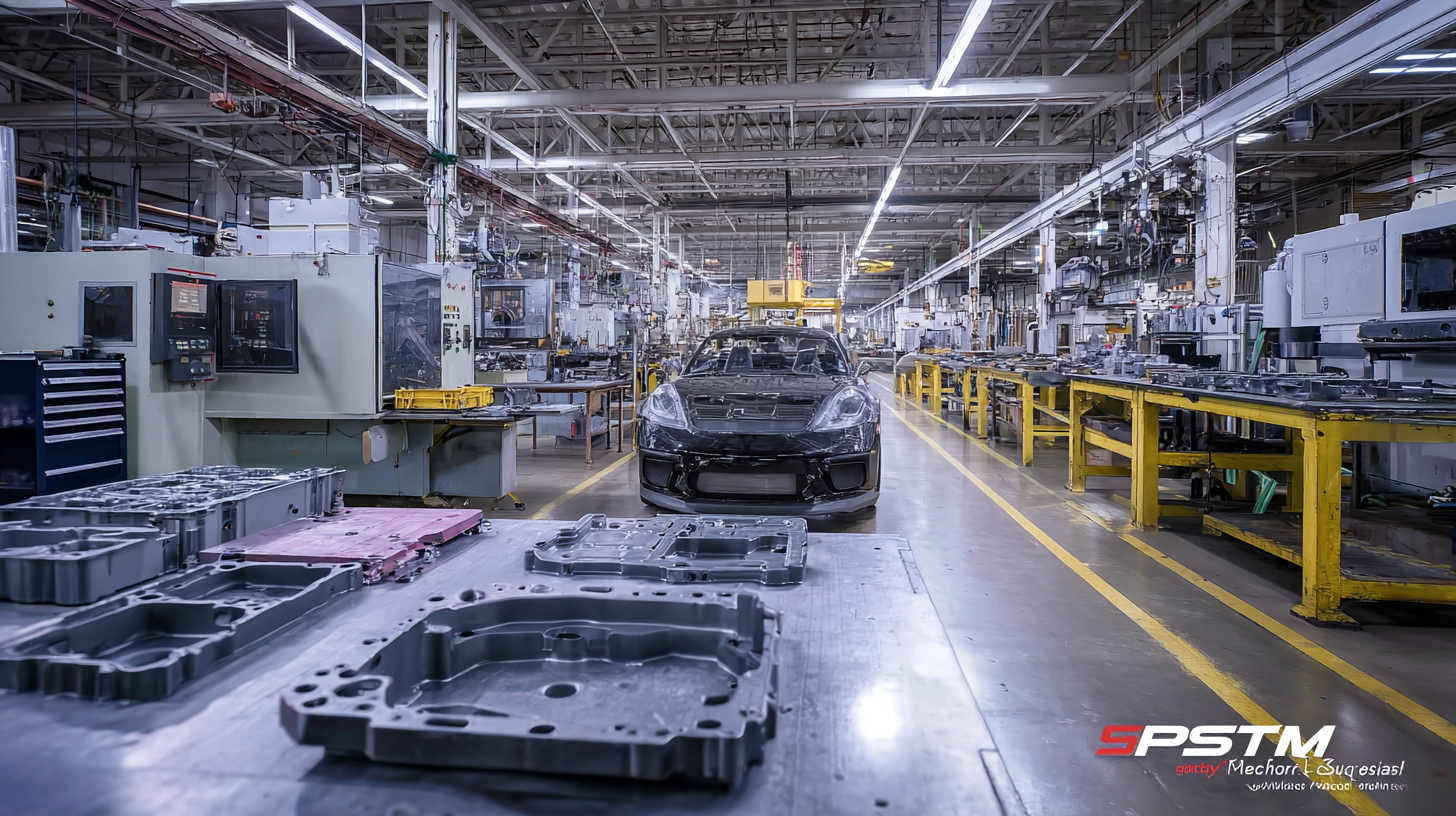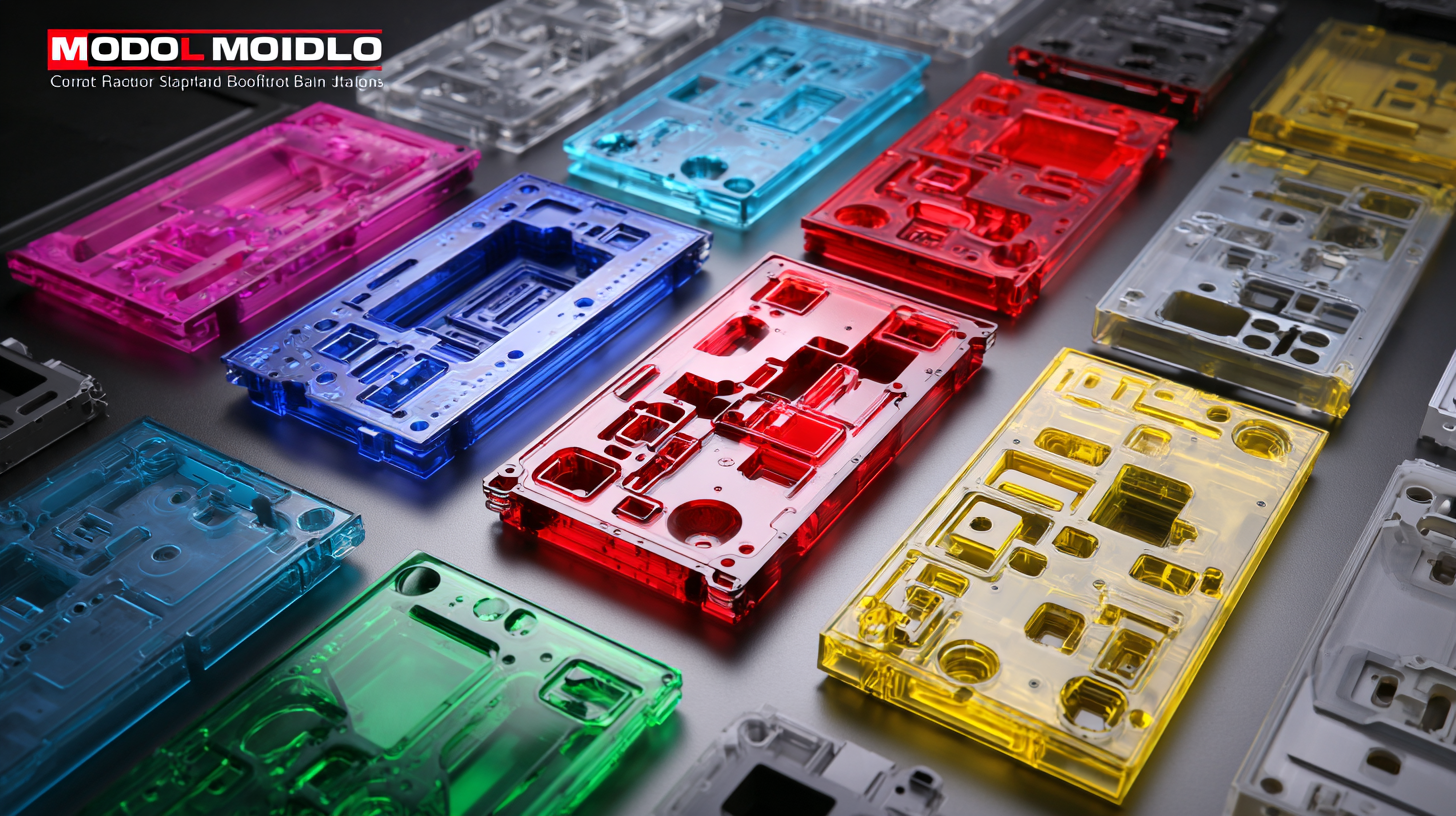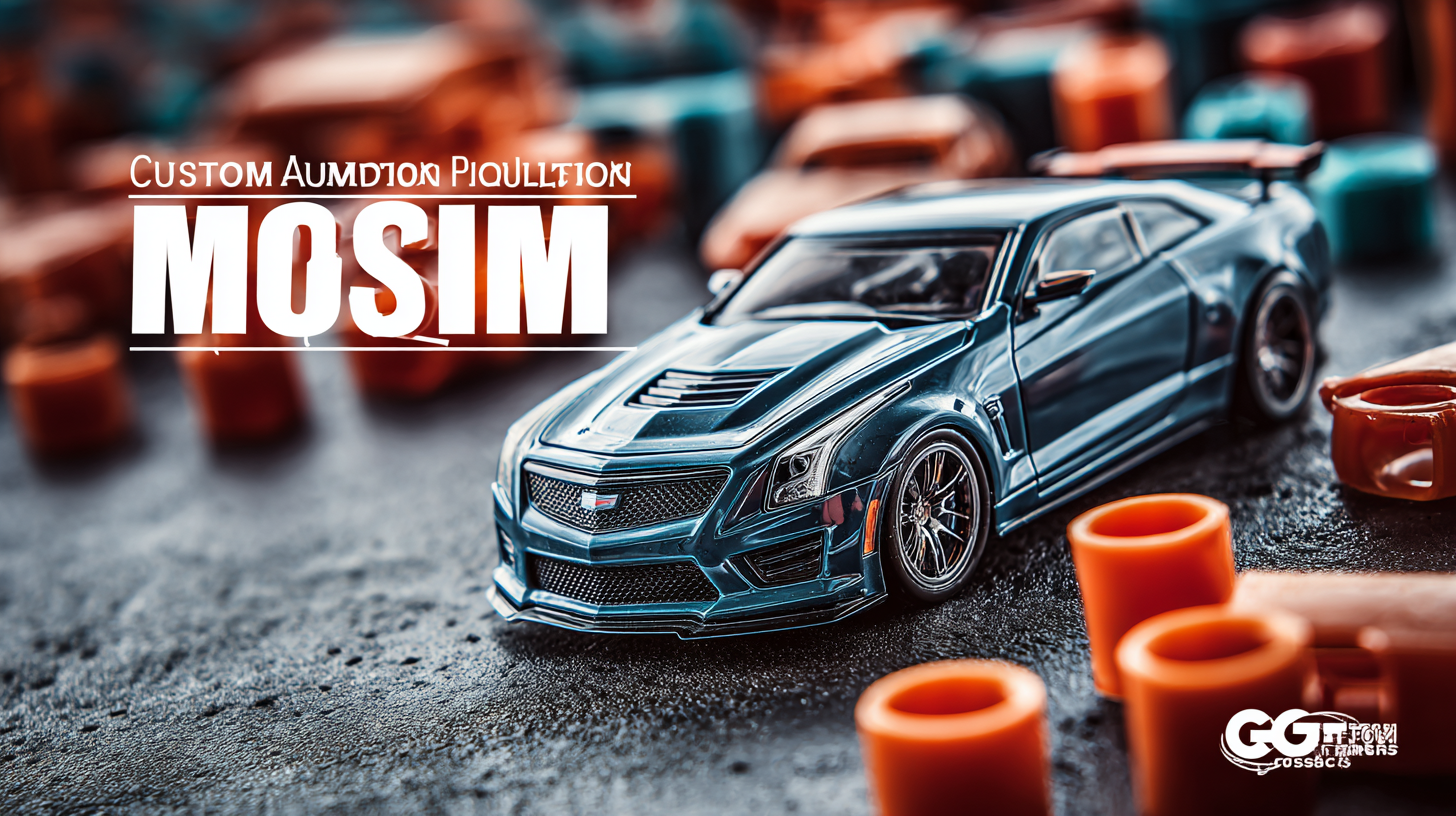In the ever-evolving world of automotive manufacturing, the demand for high-quality parts has skyrocketed, prompting businesses to seek innovative solutions for their production needs. Custom Automotive Plastic Injection Molding has emerged as a vital process that not only enhances the quality of automotive components but also ensures efficiency and cost-effectiveness. As China's manufacturing capabilities advance, the significance of choosing the right custom molding solutions becomes increasingly clear. This guide is designed to help businesses navigate the complexities of selecting the ideal automotive plastic injection molding services, ensuring that they capitalize on the latest advancements while enjoying the benefits of superior craftsmanship and global market reach. With a focus on quality upgrades and competitiveness in international markets, understanding the nuances of this manufacturing method is crucial for any company aiming to thrive in today's automotive landscape.

When selecting custom automotive plastic injection molding solutions, understanding key factors is essential to ensure optimal performance and cost-effectiveness. One of the most critical considerations is the material choice. According to a report by MarketsandMarkets, the global automotive plastics market is projected to reach USD 42.5 billion by 2026, increasing the demand for quality materials. Evaluating the specific requirements of your components, such as temperature resistance and weight, will guide your selection toward the most suitable resins.
Additionally, production capacity and lead times play a significant role. A reliable partner should have the capability to scale operations based on your business needs. A survey by the Society of Plastics Engineers found that 78% of manufacturers prioritize suppliers with proven agility and the ability to meet fluctuating demands.
**Tip:** Always request samples from potential molders to assess material quality and compatibility with your project.
Furthermore, consider the tooling and equipment used in the injection molding process. Advanced technology, like multi-cavity molds and automation, can significantly enhance efficiency and reduce costs. Embracing these innovations can yield better precision and surface finishes in your automotive parts.
**Tip:** Engage with mold designers early in the process to ensure the design aligns with optimal manufacturing practices.
When it comes to custom automotive plastic injection molding solutions, selecting the right plastic material is crucial for the success and durability of your automotive components. Different applications within the automotive industry require materials that not only meet specific performance criteria but also adhere to cost-effectiveness and manufacturing efficiency. Among the most common materials used are ABS, polypropylene, and polycarbonate, each bringing unique advantages.
 ABS is popular for its toughness and gloss finish, making it ideal for exterior parts. Polypropylene, on the other hand, offers great chemical resistance and is lightweight, perfect for under-the-hood applications where weight reduction is a priority.
ABS is popular for its toughness and gloss finish, making it ideal for exterior parts. Polypropylene, on the other hand, offers great chemical resistance and is lightweight, perfect for under-the-hood applications where weight reduction is a priority.
Another critical material in automotive injection molding is polycarbonate, known for its exceptional strength and impact resistance. This makes it suitable for safety-critical components like headlights and interior parts that demand high transparency and durability. Furthermore, engineers often consider additives and blends to enhance properties such as UV stability and flame retardance, which can significantly extend the lifespan of automotive parts. By understanding these material properties and their applications, businesses can make informed decisions that align with their production goals and ensure the reliability of their automotive products.
When it comes to selecting the best custom automotive plastic injection molding solutions for your business, understanding the various injection molding techniques available is crucial. The primary techniques include standard injection molding, gas-assisted injection molding, and multi-material injection molding. Each method offers unique advantages that can cater to specific project requirements, ensuring that the final product meets quality and efficiency standards.
Standard injection molding is ideal for producing high volumes of consistent parts quickly and cost-effectively. However, for projects demanding complex geometries or reduced weight in components, gas-assisted injection molding can be a game-changer. This technique introduces gas into the mold during the injection process, resulting in a lighter part without compromising strength. On the other hand, multi-material injection molding allows the combination of different plastics, enabling the creation of more complex components with varied properties in a single step. By carefully evaluating these techniques, businesses can choose the most suitable solution tailored to their custom needs.
When selecting custom automotive plastic injection molding solutions, businesses must navigate the delicate balance between quality and cost. According to a recent report by MarketsandMarkets, the global automotive plastics market is projected to reach $66.8 billion by 2025, growing at a CAGR of 9.7%. This surge reflects the increasing demand for lightweight materials that enhance vehicle performance while maintaining aesthetic appeal. However, as companies strive to meet these demands, understanding the cost implications of high-quality materials and processes becomes crucial.

Quality in automotive plastic solutions is often associated with longer-lasting products that can endure harsh automotive environments. A study by Grand View Research highlights that high-performance plastics can reduce vehicle weight by as much as 20%, translating into significant fuel savings over time. As businesses explore molding options, investing in premium-grade materials may contribute to initial higher costs but could foster better long-term returns by minimizing replacements and enhancing vehicle efficiency. To strike the right balance, companies should conduct a thorough cost-benefit analysis that weighs upfront expenses against potential long-term savings and performance benefits, ensuring they choose a provider that aligns with their sustainability and profitability goals.
When selecting a reliable injection molding partner for your custom automotive plastic needs, it’s essential to focus on a manufacturer’s ability to navigate the complexities of the supply chain, particularly in today’s ever-evolving landscape of renewable energy. The rapid growth of this industry has introduced a myriad of challenges, including sourcing materials, ensuring timely deliveries, and maintaining production efficiency. A capable injection molding partner should demonstrate not only technical expertise but also a robust understanding of supply chain management, leveraging tools and strategies to mitigate these challenges effectively.
Key qualities to look for in a manufacturer include their experience with advanced materials suited for the automotive sector, as well as their commitment to sustainability practices. A proactive partner will have strategies in place to address potential disruptions, ensuring a steady flow of production while adhering to industry standards. Additionally, communication and transparency are vital; a good manufacturer should keep you informed about the status of your projects and potential supply chain issues, enabling you to make informed decisions for your business. By prioritizing these factors, companies can build solid partnerships that align with their operational goals and drive long-term success in the competitive automotive market.
| Dimension | Specifications | Considerations |
|---|---|---|
| Material Types | ABS, Polypropylene, Nylon | Determine compatibility with products. |
| Molding Capacity | 50,000 - 1,000,000 units/year | Match production needs with capabilities. |
| Lead Time | 4-12 weeks | Consider project timelines and urgency. |
| Quality Certifications | ISO 9001, TS 16949 | Ensure compliance with industry standards. |
| Cost per Unit | $0.10 - $5.00 | Evaluate affordability vs quality. |
| Post-Processing Services | Painting, Assembly, Packaging | Assess available finishing options. |
